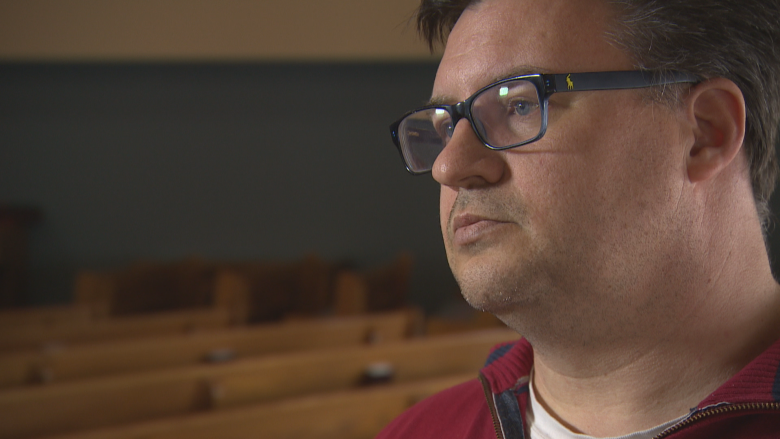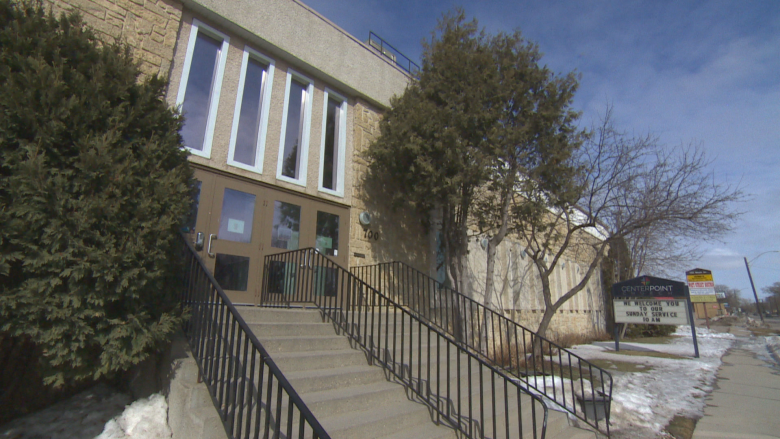Ottawa 'withholding taxpayer money' from religious groups for summer jobs grant, Winnipeg pastor says
A Winnipeg church says the federal government is shutting out religious groups with a new rule this year for organizations seeking summer job funding, a day after the House of Commons voted down a motion to amend the change.
"I think it was very heavy-handed. I don't really understand why [the federal government] decided not to listen to the concerns of so many of their constituents across the country," said Glenn Krobel, lead pastor at Winnipeg's Centerpoint Church.
"Certainly, we've tried to be careful and articulate in a way that was respectful and thoughtful, but … they just haven't been willing to change anything."
For the better part of the past decade, Krobel says his church has applied for, and received, funding through the Canada Summer Jobs grant to pay summer students to work at its day camp. This year, their initial application was rejected. He's not sure they'll get the funding on reapplication, because of a controversial new requirement in the application.
The federal Liberals introduced a new element on the 2018 grant application, requiring applicants to check off a box attesting they respect "individual human rights in Canada," including reproductive and LGBT rights.
The move has been challenged by faith-groups across Canada, including in Manitoba.
Centerpoint didn't check off the attestation box in their initial rejected application, and they've been invited to attest and reapply.
According to numbers provided by the federal government, applications to the program have increased slightly to 42,718 from 41,961 last year. Reported rejections, however, have skyrocketed, increasing twelve-fold to 1,561 from 126 in 2017.
A spokesperson for Labour Minister Patty Hajdu told CBC News that applications were rejected for a variety of reasons, including improperly filled-out forms and groups not checking the box for the attestation.
The spokesperson did not provide a specific breakdown on how many applications were rejected based on the latter. He said all groups rejected were asked to reapply.
"The number of eligible applications received this year are on par with last year, and came from tens of thousands of small businesses, faith-based organizations, and community organizations across Canada," Matt Pascuzzo, Hajdu's press secretary, wrote in an email to CBC News.
"We look forward to another summer of great work experience for young Canadians."
On Monday, MPs in the House of Commons voted against a motion introduced by Ontario Conservative MP Karen Vecchio, which would have amended the application to allow organizations that engage in non-political, non-activist work to access the funding regardless of whether they checked off the attestation.
The motion was voted down with 207 votes against and 93 votes in favour — including votes from every Conservative MP. Only one MP from the Liberals and one from the NDP voted in support of the motion, as did Green Party MP Elizabeth May.
"The government is withholding taxpayer money. This isn't simply money that they received from nowhere. It's from every taxpayer who's voted on every area of the political spectrum," Krobel said.
"The government's role is to govern for everyone, not just the people that agree with them or that voted for them, or that they feel may have voted for them."
Government 'inflexible': church
The government has said the additional wording on this year's application was a response to concerns Hajdu heard last year that funding through the program had gone toward paying for students to protest outside abortion clinics or create and distribute graphic anti-abortion pamphlets, or went to groups that refused to hire LGBTQ staff.
Krobel said neither his church nor its day camp engage in any level of activism, but leaders still felt their conscience prevented them from signing the attestation.
On Centerpoint's first application, the church did not check the attestation box, but provided a letter explaining its stance, following a recommendation from the Canadian Council of Christian Charities.
The council encouraged charities in Centerpoint's position to apply, without checking the attestation box, and provide a letter requesting accommodation under the Charter of Rights and Freedoms and the Canadian Human Rights Act.
"Our religious beliefs and obligations, our conscience, our beliefs, thoughts, and opinions all preclude us from making the attestation as set out in the application and guide, including the supplementary information," the letter reads.
In response, Krobel said the church was invited to reapply, after checking the attestation box.
"If it's not about our beliefs and our values, then why, when we provide an alternate explanation to why we're not in favour of the way you're writing your attestation but that we certainly aren't an activist organization or anything like that, then why wouldn't you approve it?" he said.
"I'm confused as to why the government rejected them out of hand. It seems to me that they're the ones being inflexible here, not the churches or the other organizations that have had issues with it."
He's not certain if his group has been officially rejected, but if it is, the church will have to make up for the lost funding from its own coffers. Last year, it received about $8,100 through the jobs program, he said.
Krobel said his church wouldn't sign on to the attestation, even if the request lined up with its core values.
"Even if these values were something that we would agree with, we think it's beyond the purview of the government to be demanding that."
Clarification : A previous version of this story said the reasons for rejected applications were not provided by the federal government. In fact, a spokesperson for Labour Minister Patty Hajdu told CBC News that applications were rejected for a variety of reasons, including improperly filled-out forms and groups not checking the box for the attestation.(Mar 20, 2018 3:41 PM)



